Meat is a great source of protein and adds a lot of satisfying flavor to meals.
Compared to other foods, it requires a little special consideration when handling it, since it can easily harbor bacteria that can cause food poisoning.
Storing it well is essential to keeping it fresh and preventing food poisoning.
Keeping it in the refrigerator or freezer is a great option, but it’s not always possible.

If you don’t have access to a reliable fridge or want to protect your food supply from power fluctuations, learning to store meat without a refrigerator is a smart move.
There are a few ways to safely store meat without refrigeration.
Dry Curing
Ever had salami or pepperoni? That is dry-cured meat. This method involves rubbing meat with a salt mixture, which pulls out moisture and prevents bacteria from growing.
What You Need
Salt Sugar Nitrates (found online or at specialty butchers) Meat of choiceHow it works:
The salt in the dry cure mixture pulls moisture out of the meat. This creates an environment that is too dry for bacteria to grow.
The cure also contains nitrates, which prevent bacteria from growing and add flavor to the meat.
You have likely eaten dry-cured meat before without realizing it. Salami, pepperoni, and other cured meats are all examples of dry-cured meats.
Dry curing is a great way to store meat without refrigeration, but it does take some time. It can take anywhere from a few days to a few weeks for the meat to be properly cured.
Once it is cured, the meat can be stored at room temperature for up to a year.
Instructions:
Combine the salt, sugar, and nitrates in a bowl and mix well. Rub the mixture all over the meat, making sure to cover it completely. Place the meat in a container and cover it tightly. Store the meat in a cool, dark place for the curing time specified in your recipe. When the curing time is up, remove the meat from the container and rinse it off with cool water. Pat the meat dry and wrap it in butcher paper or plastic wrap. Store the wrapped meat in a cool, dark place.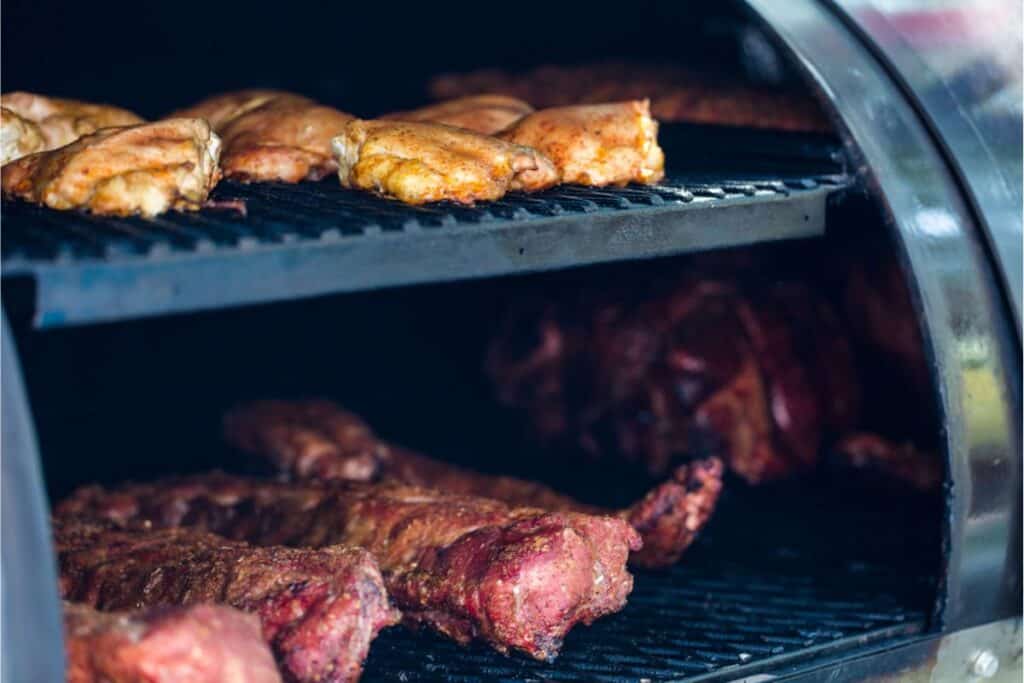
Smoking
Smoking is another great way to preserve meat without refrigeration. Smoking works by slowly cooking the meat over low heat. This dries out the meat and prevents bacteria from growing.
Smoked meats will last for several months when stored in a cool, dark place.
What You Need
A smoker Wood chips The meat you want to smokeInstructions:
Prepare your smoker according to the manufacturer’s instructions. Add wood chips to the smoker and let them soak for 30 minutes. Place the meat on the racks in the smoker and close the lid. Smoke the meat at a low temperature (200-225 degrees Fahrenheit) for the time specified in your recipe. When the smoking time is up, remove the meat from the smoker and wrap it in butcher paper or plastic wrap. Store the wrapped meat in a cool, dark place.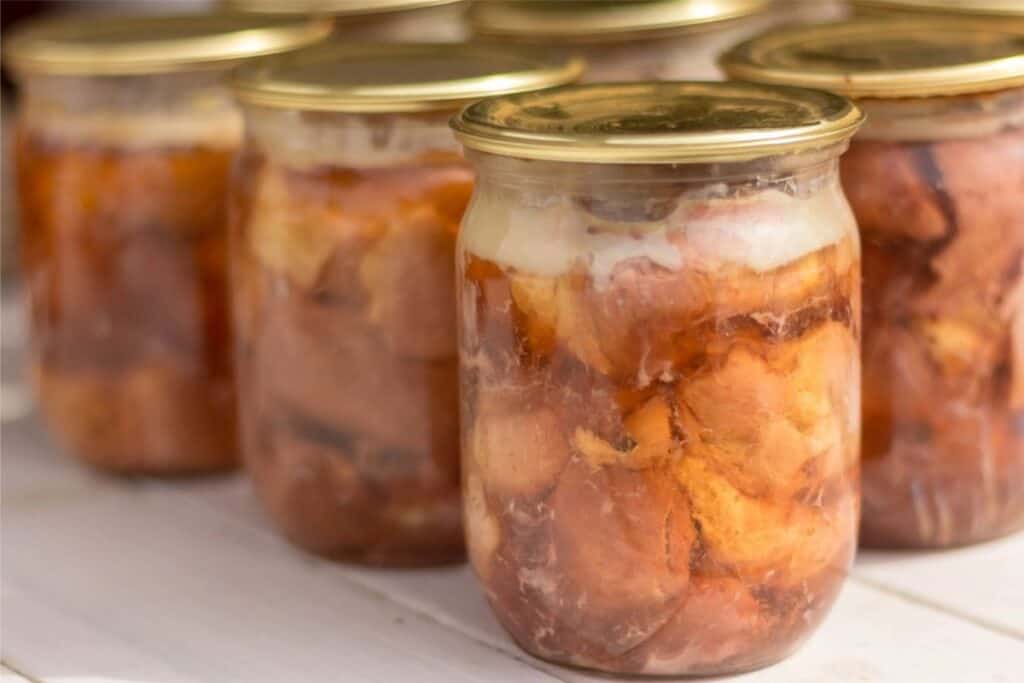
Canning
Canning is a great way to store meat without refrigeration.
Canning involves cooking the meat and sealing it in a jar.
This prevents bacteria from growing and allows the meat to be stored at room temperature for up to a year.
Canning is a great option if you want to store meat without taking up a lot of space.
It is also a good option if you want to be able to grab a quick meal without having to cook.
What You Need
A pressure cooker Glass jars with lids The meat you want to canInstructions:
Cook the meat according to your recipe. Place the cooked meat in the glass jars. Seal the jars with their lids and place them in the pressure cooker. Cook the jars according to the manufacturer’s instructions. When the canning time is up, remove the jars from the pressure cooker and let them cool. Store the jars in a cool, dark place.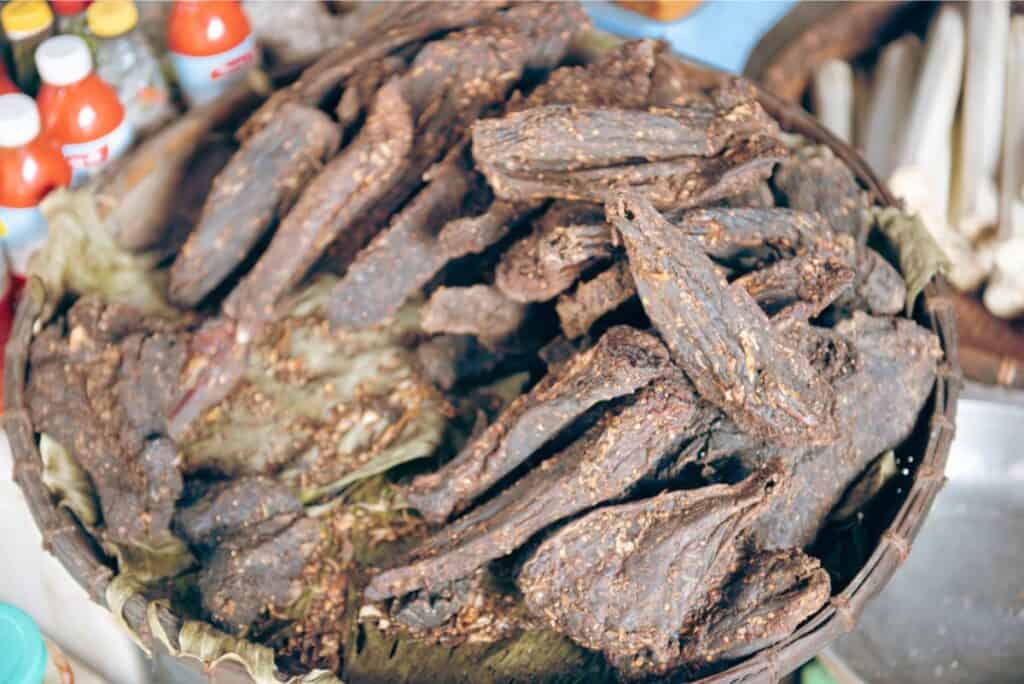
Drying
Drying is another great way to store meat without refrigeration.
Drying works by removing the water from the meat, which prevents bacteria from growing.
Jerky and pemmican are a couple examples of dried meat.
Dried meats will last for several months.
What You Need
A dehydrator The meat you want to dryInstructions:
Cut the meat into thin strips. Place the strips on the racks in the dehydrator. Dehydrate the meat according to the manufacturer’s instructions. When the meat is dry, store it in an airtight container in a cool, dark place.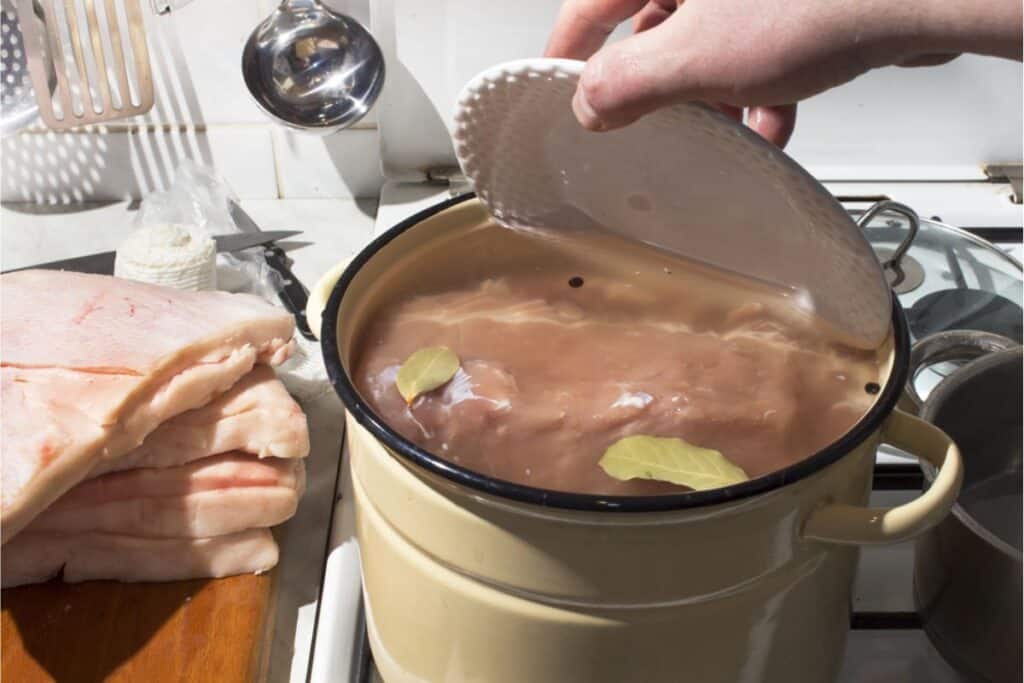
Pickling
Pickling is another great way to store meat without refrigeration.
Pickling works by preserving the meat in a vinegar or brine solution.
This prevents bacteria from growing and allows the meat to be stored at room temperature for up to a year.
Pickled meats are a great option if you want to add some flavor to your preserved meats.
What You Need
A glass jar with a lid The meat you want to pickle Vinegar or brine (enough to cover the meat)Instructions:
Place the meat in the glass jar. Cover the meat with vinegar or brine. Seal the jar with its lid and store it in a cool, dark place. Pickled meats will be ready to eat after a few days. They can last for up to a year when stored in a cool, dark place.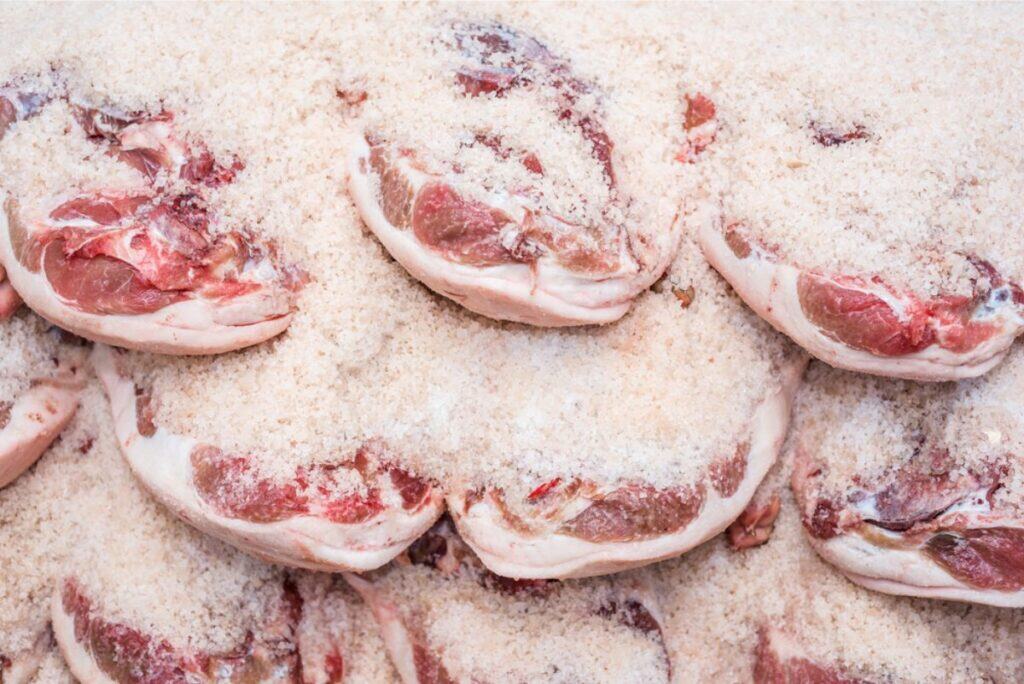
Salting
Salting is another great way to store meat without refrigeration.
Salting works by preserving the meat in a salt solution.
This prevents bacteria from growing and allows the meat to be stored at room temperature for up to a year.
Salting is one of the oldest methods of meat preservation.
What You Need
A glass jar with a lid or a crock that has just enough room for the meat. The meat you want to salt Salt (enough to cover the meat)Instructions:
Place the meat in the glass jar. Cover the meat with salt. Seal the jar with its lid and store it in a cool, dark place somewhere that’s 36 degrees fahrenheit for at least one month. Wrap the meat in plastic wrap – it is salted and preserved and will keep for several weeks this way!These are just a few of the ways that you can store meat without refrigeration. Give them all a try and see what works for you.
Additional Tips
When preserving meat without refrigeration, it is important to keep the following tips in mind:
Use fresh meat for the best results. Cut the meat into small pieces to help it process more evenly. If using salt to preserve the meat, know that different types of salt will have different results. Try to use pickling or canning salt for the best results. Try different methods for different types of meat to see what flavors you enjoy the most. When in doubt, throw it out. If the meat looks or smells bad, it is probably not safe to eat.With these tips in mind, you should be able to preserve meat without refrigeration like a pro!













 Bengali (Bangladesh) ·
Bengali (Bangladesh) ·  English (United States) ·
English (United States) ·